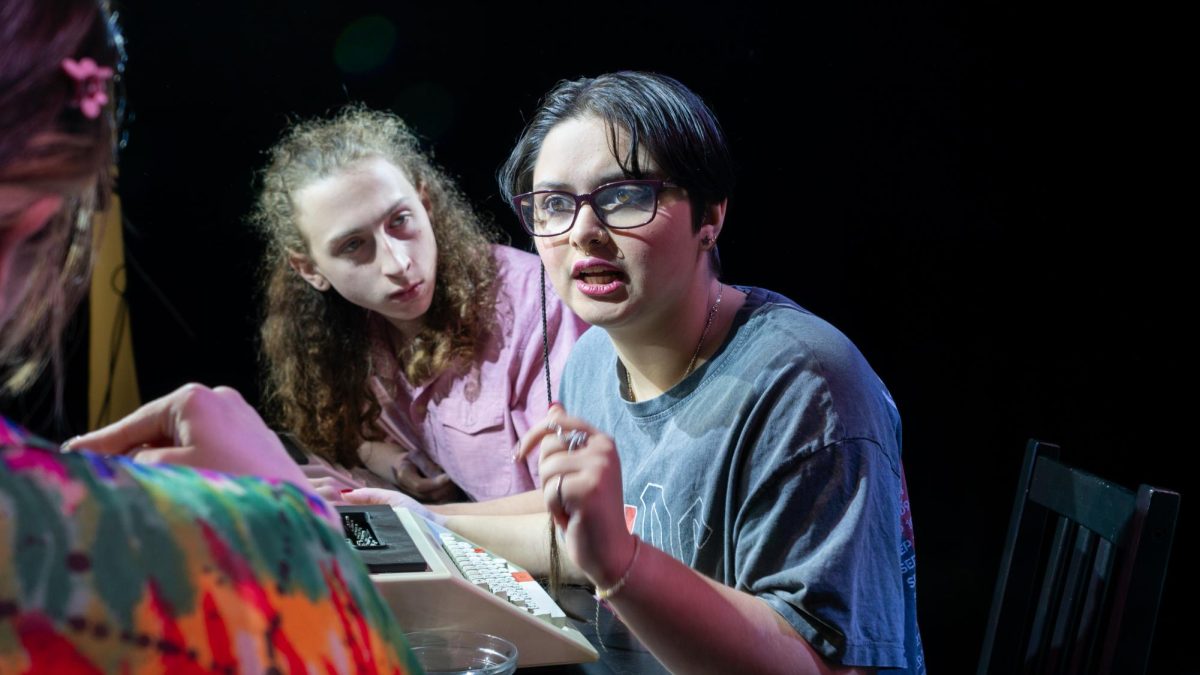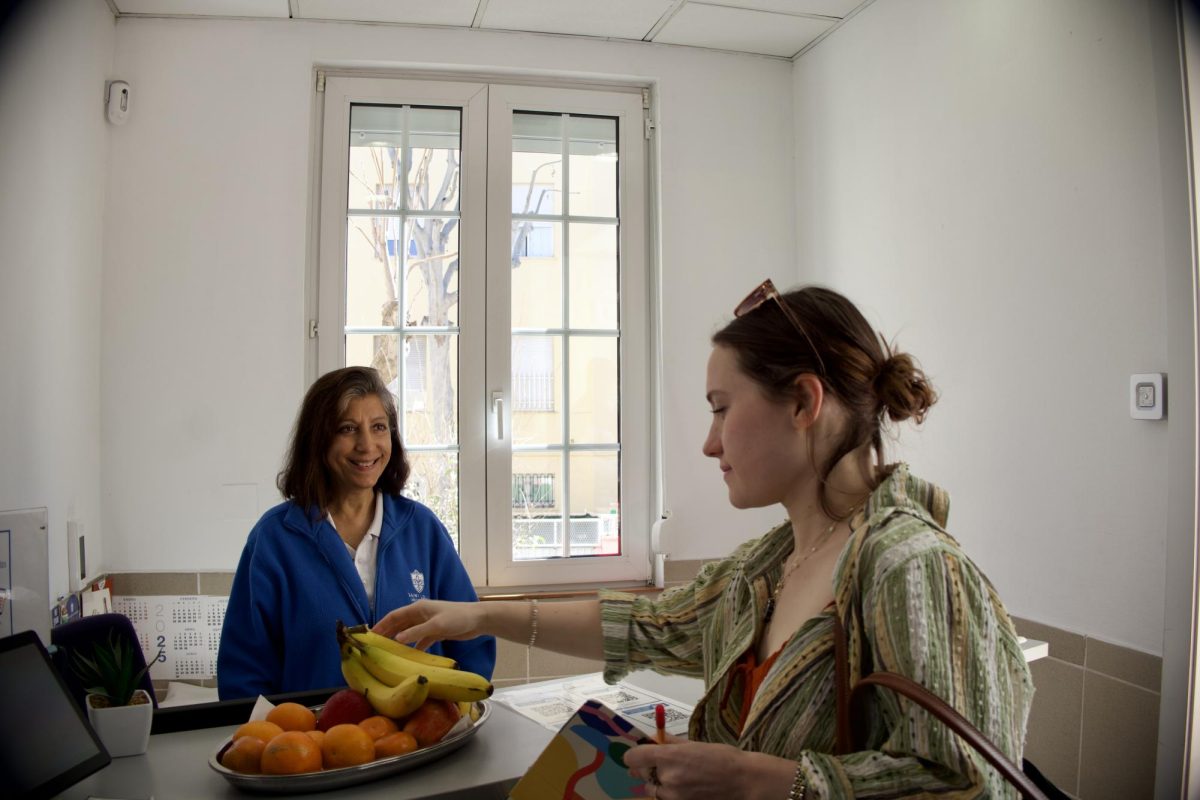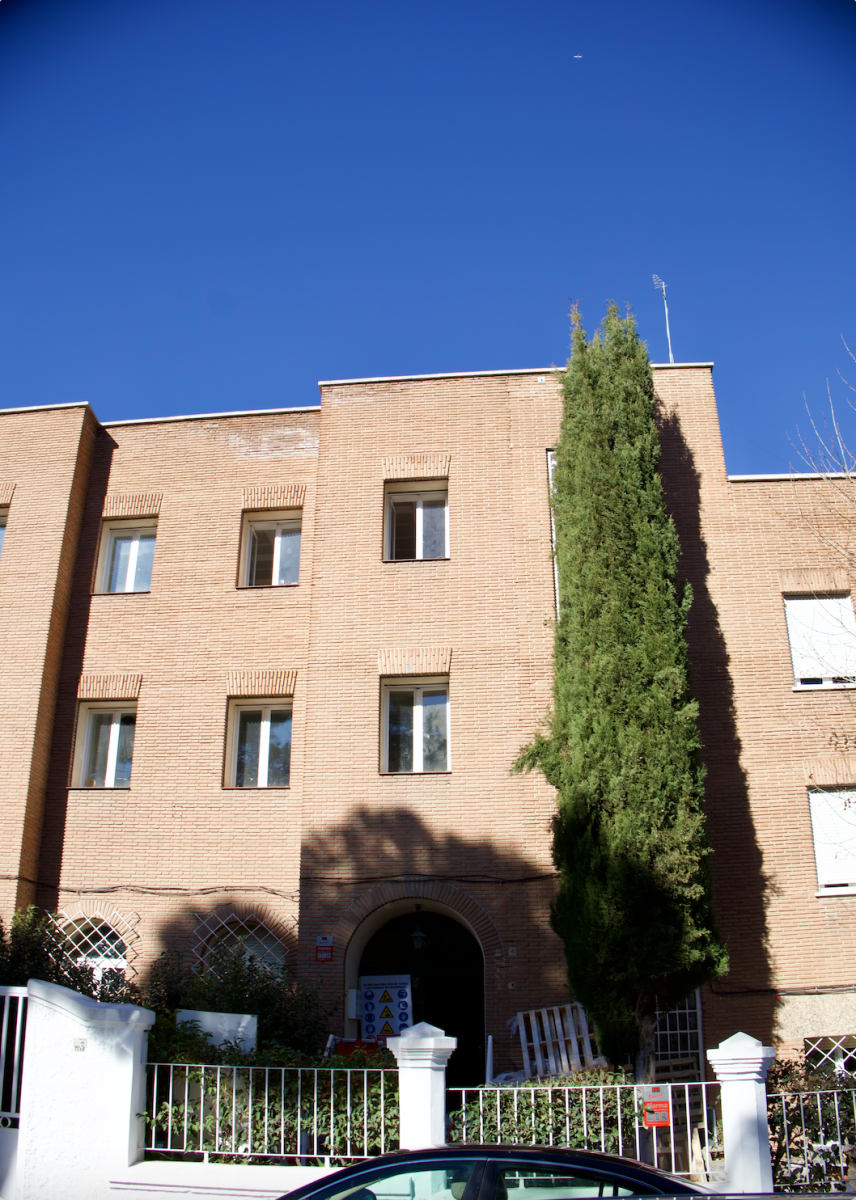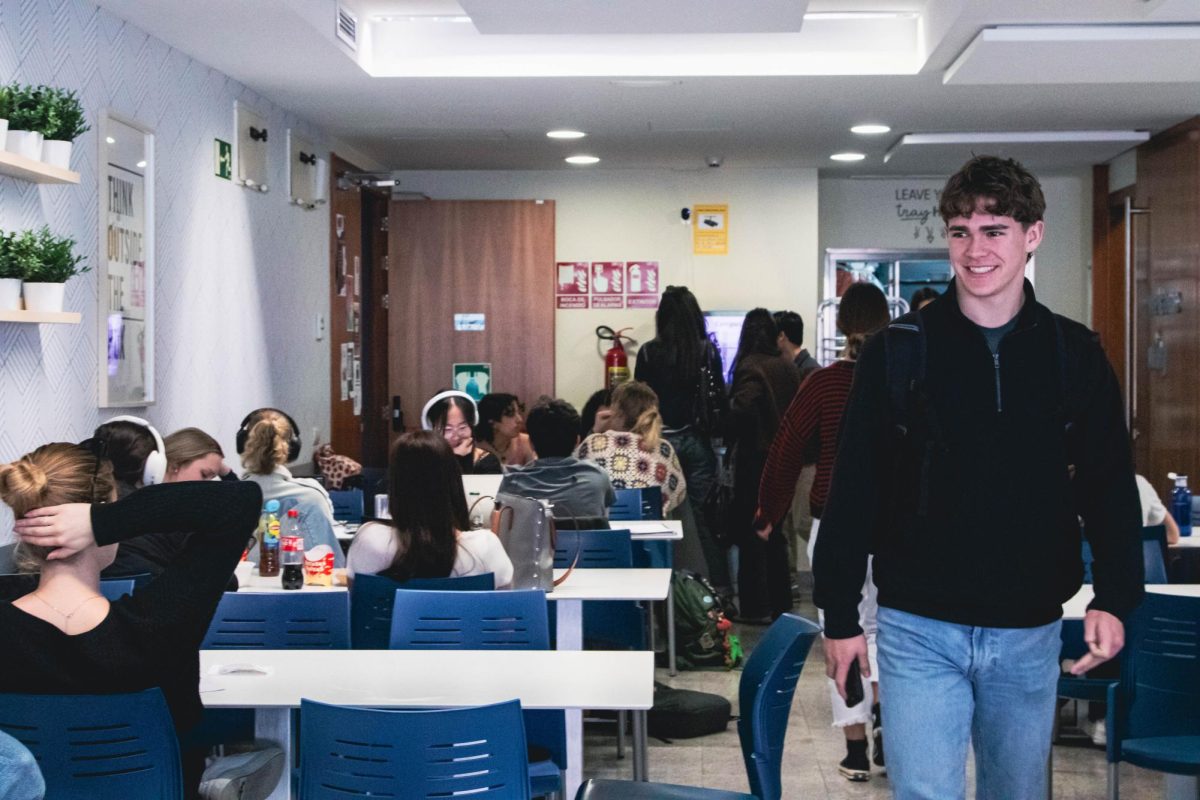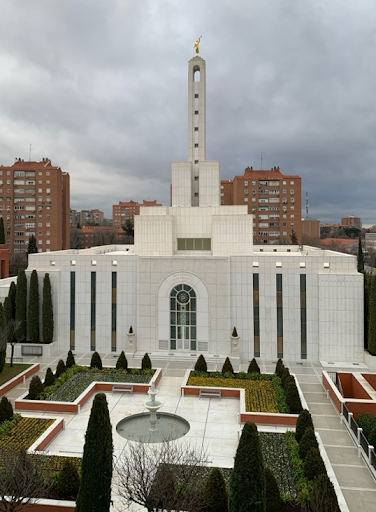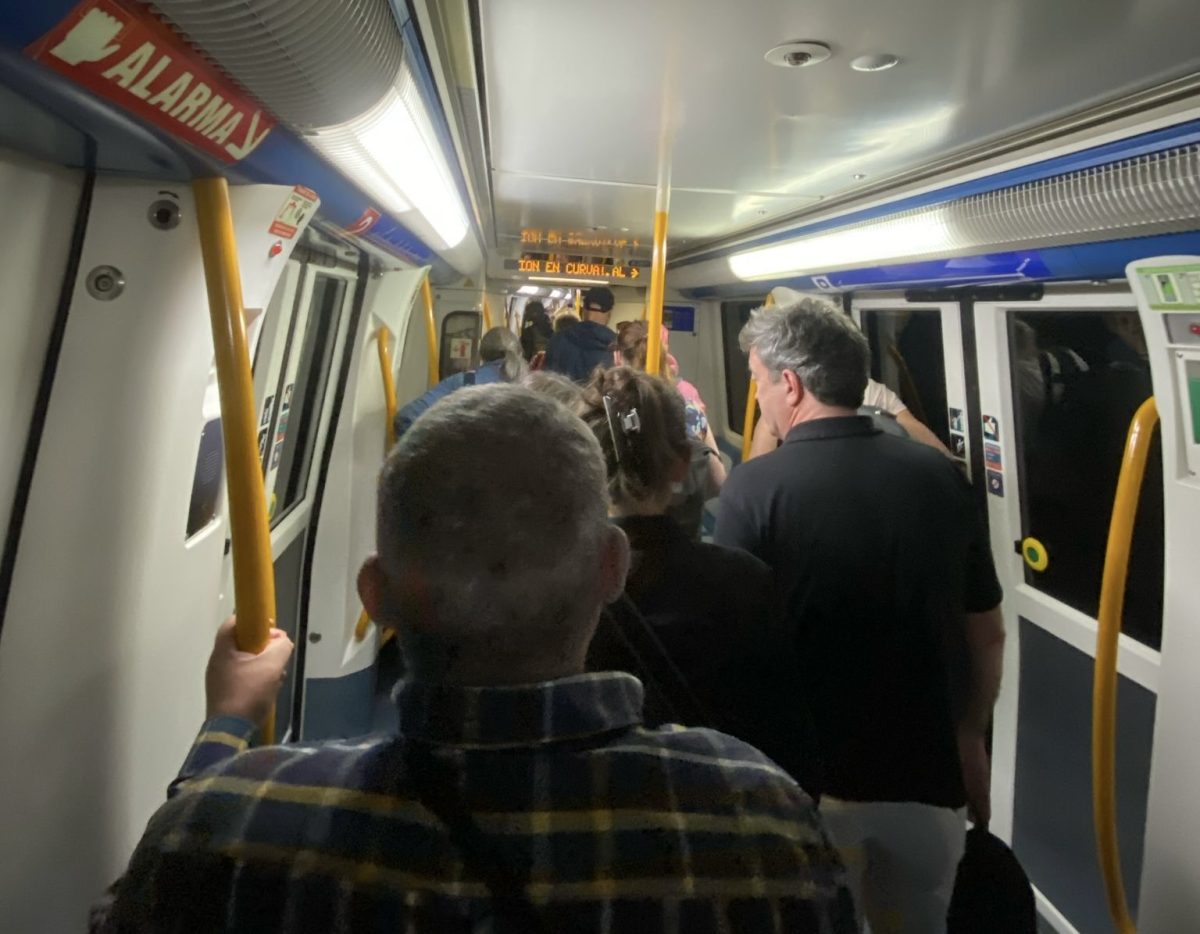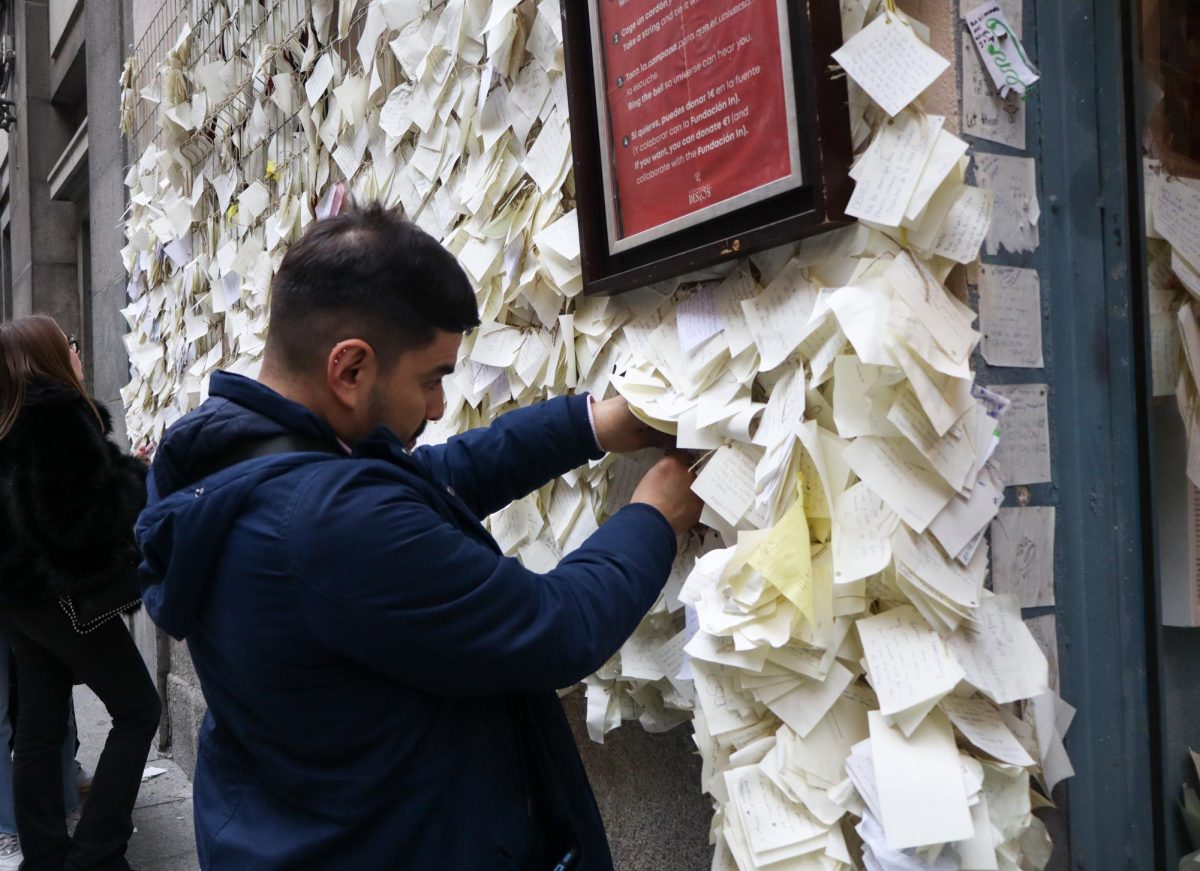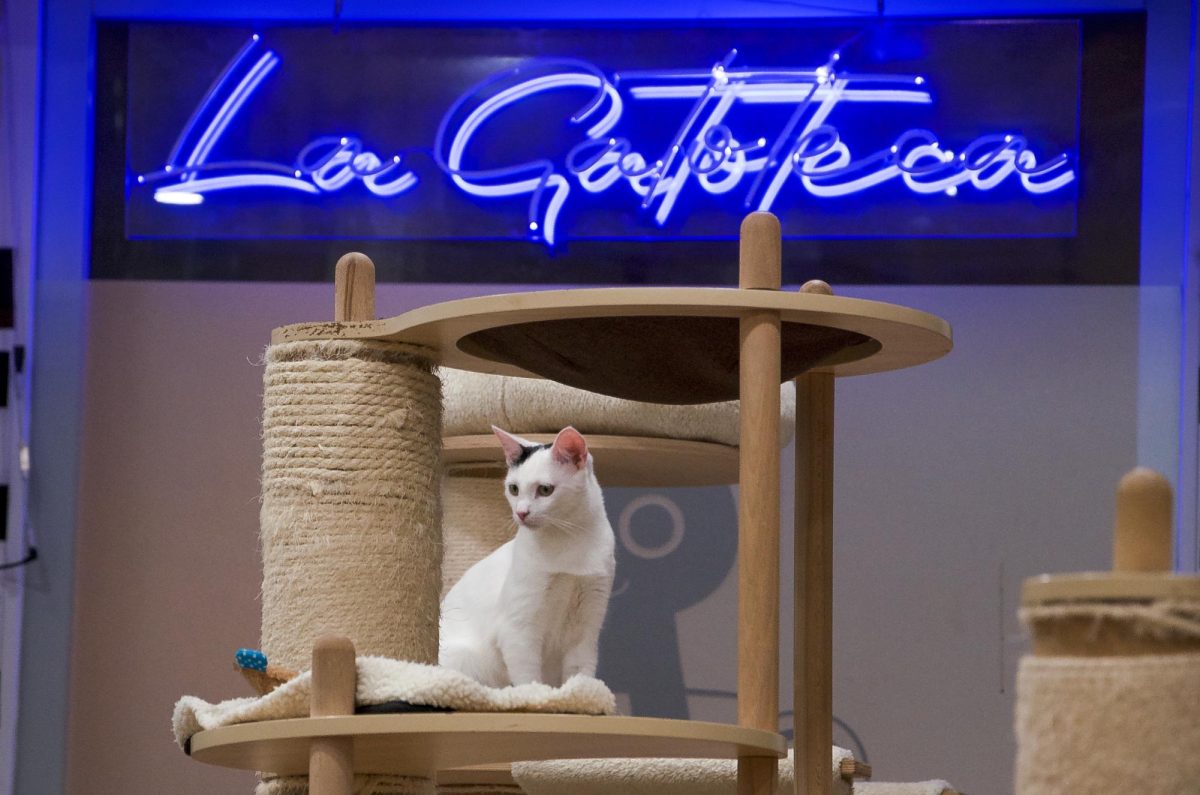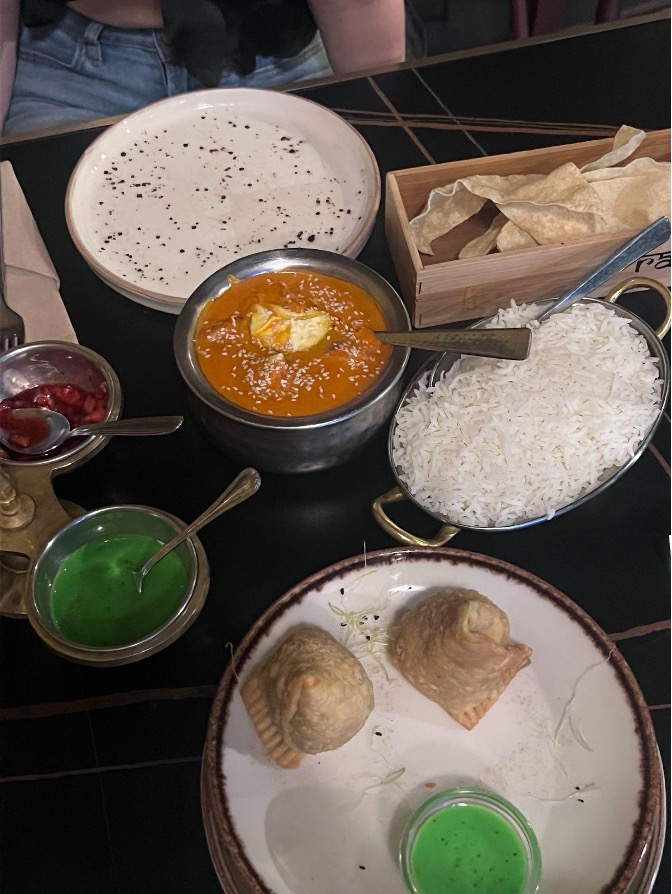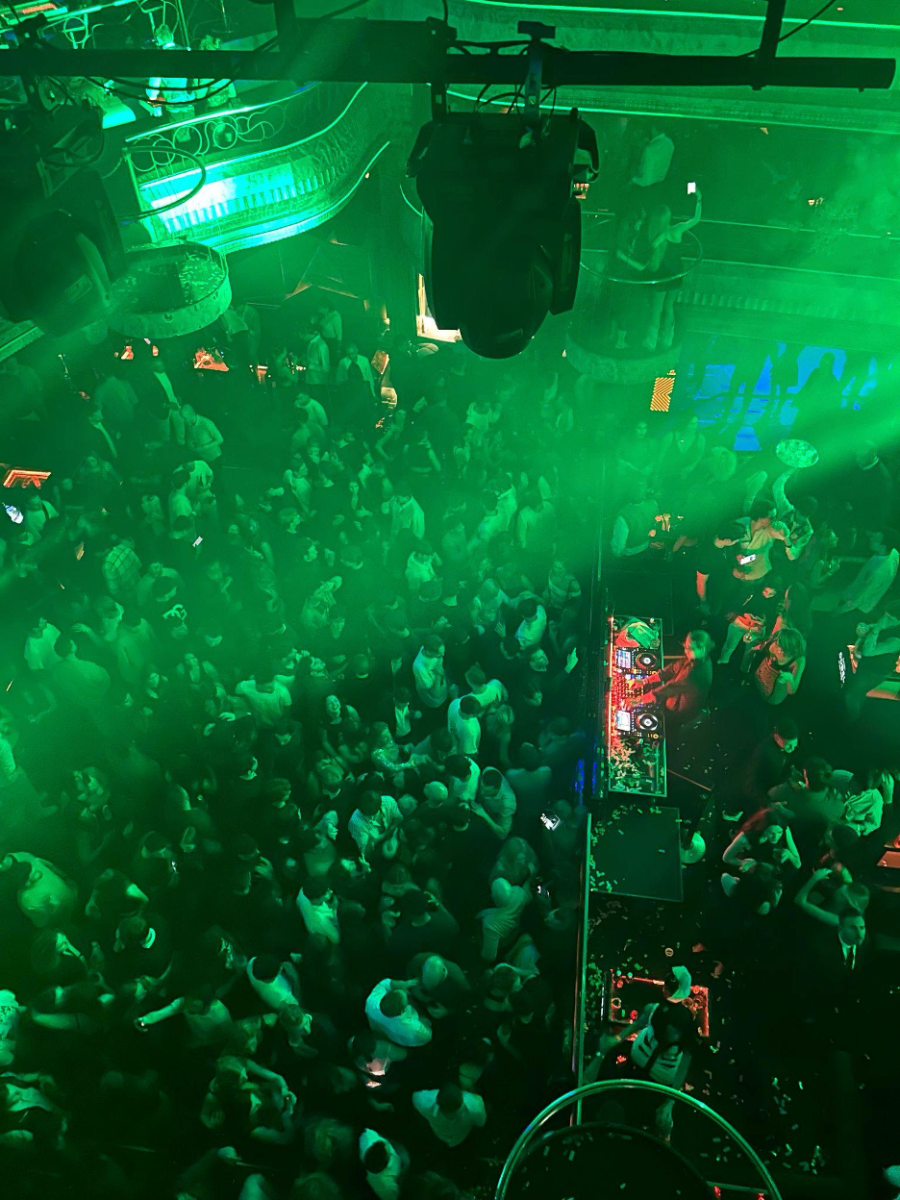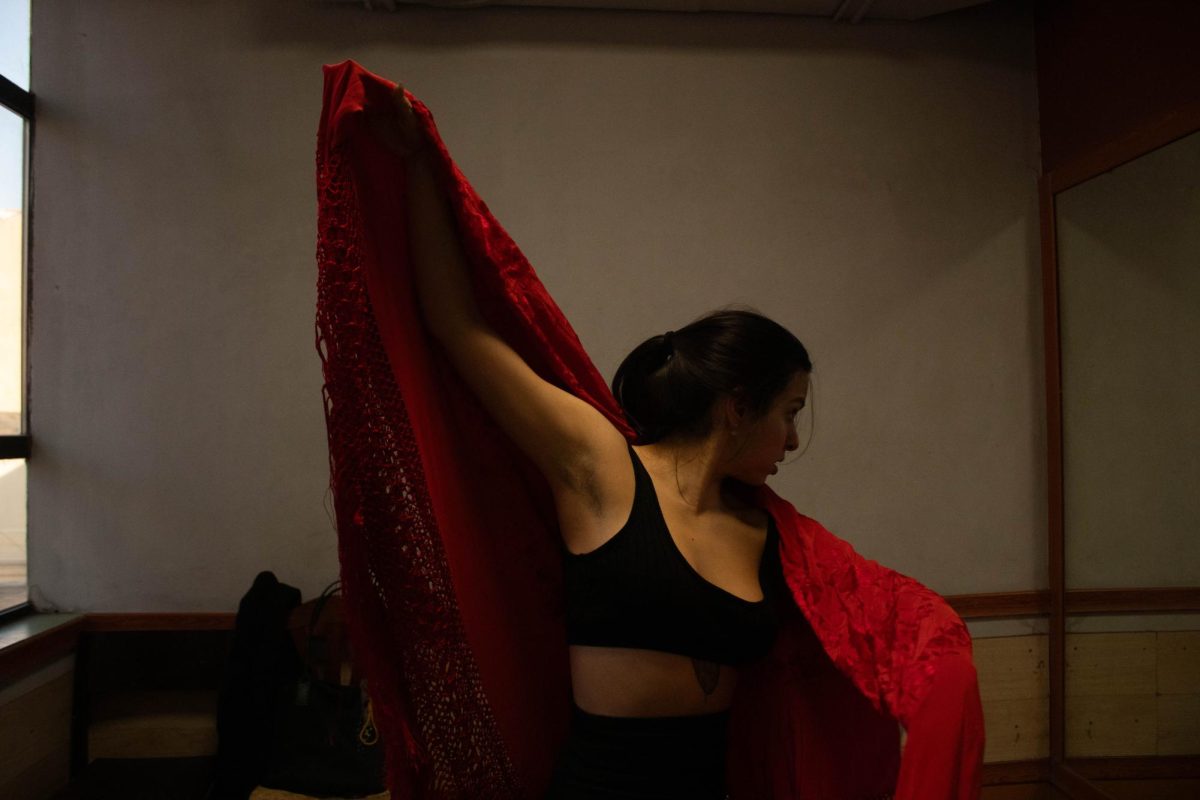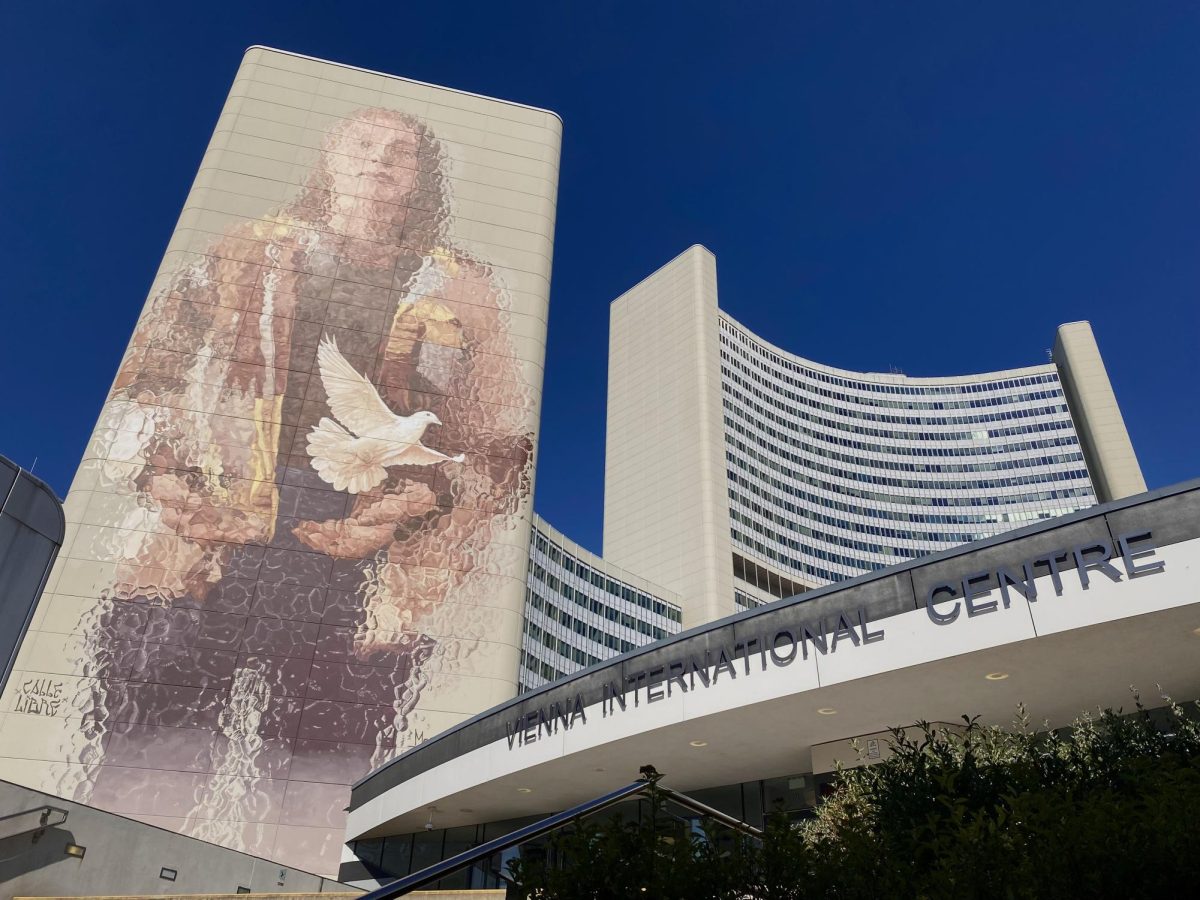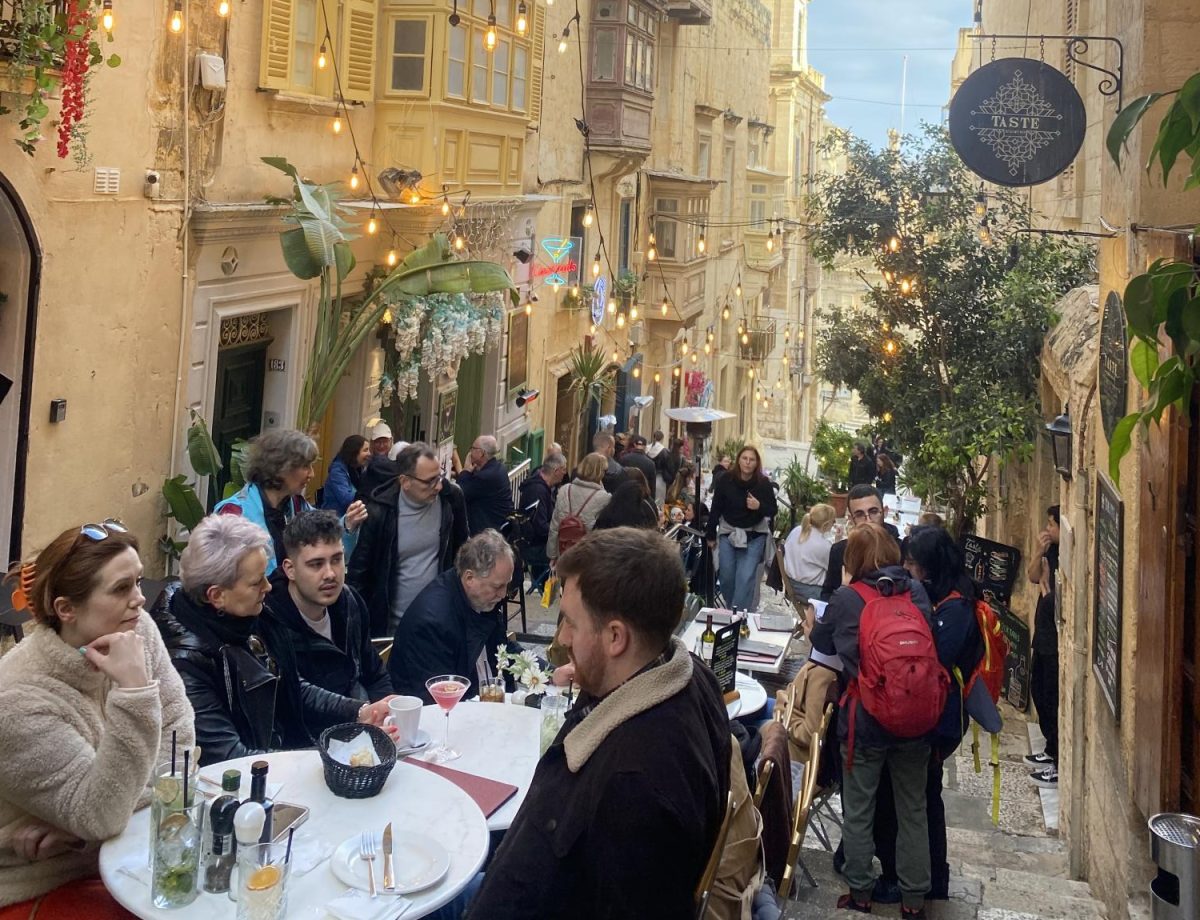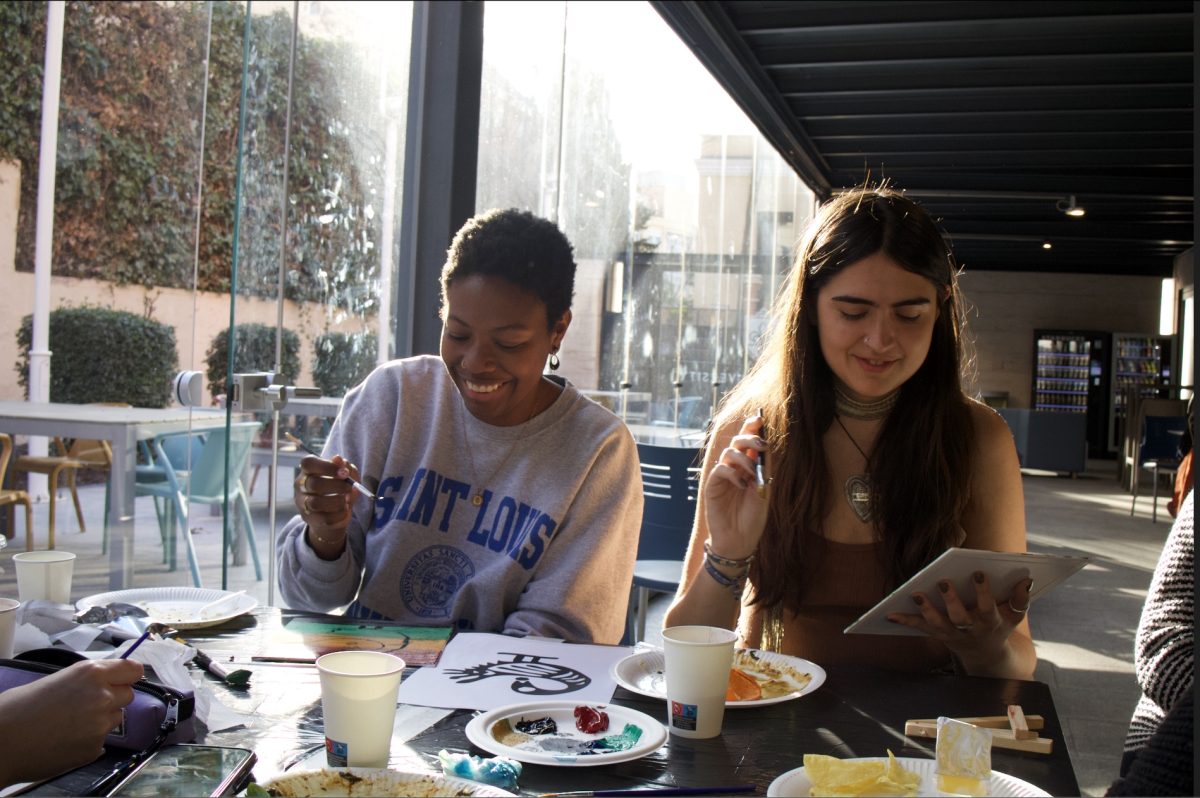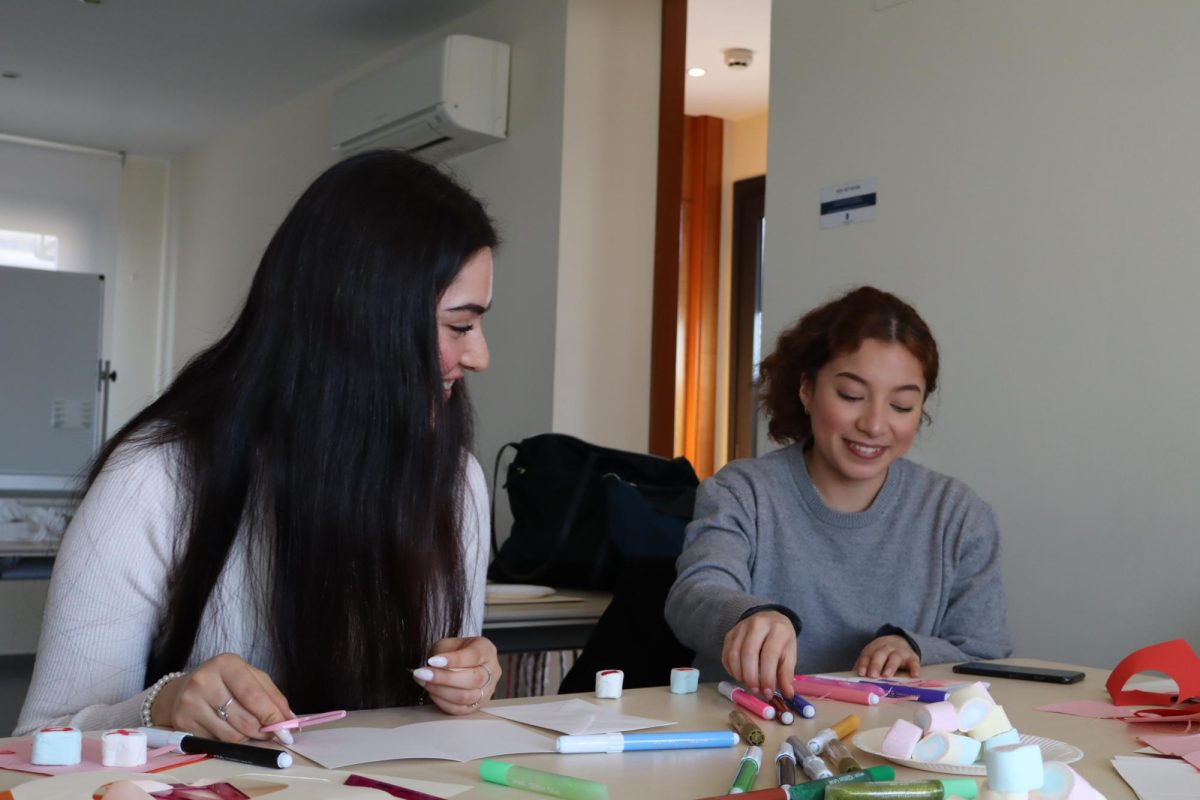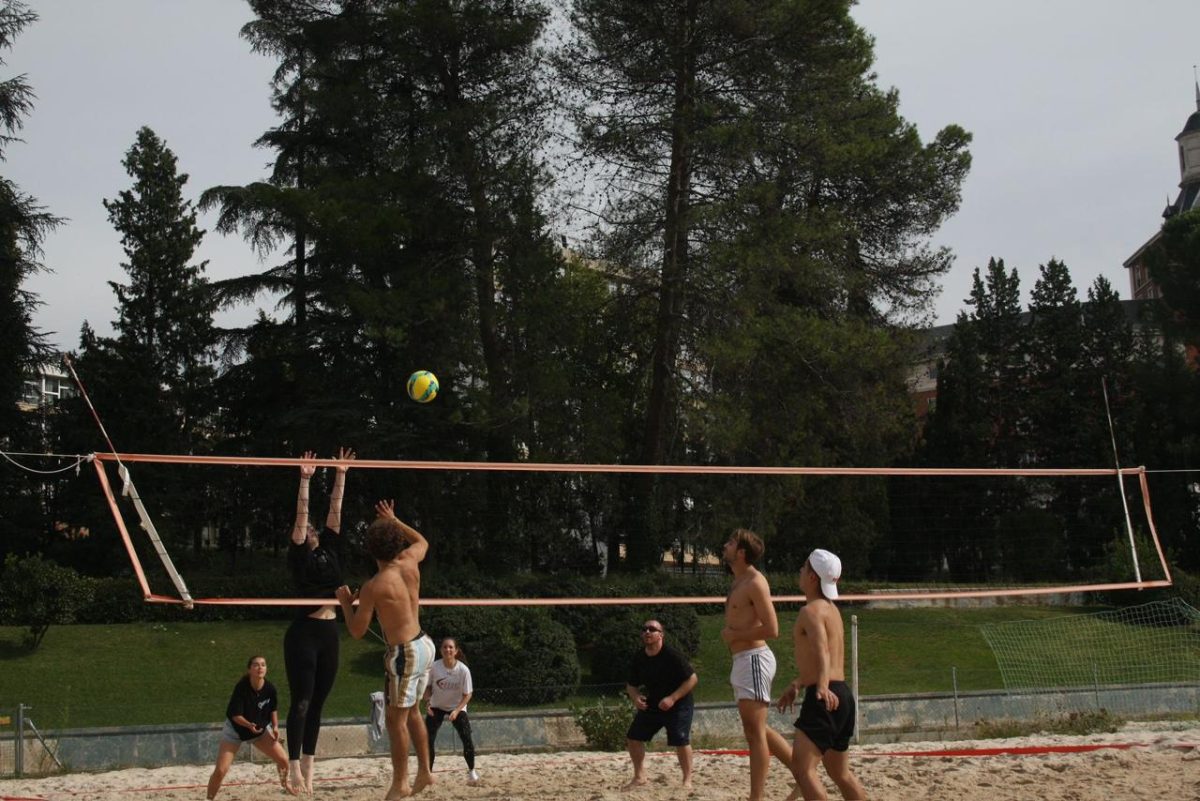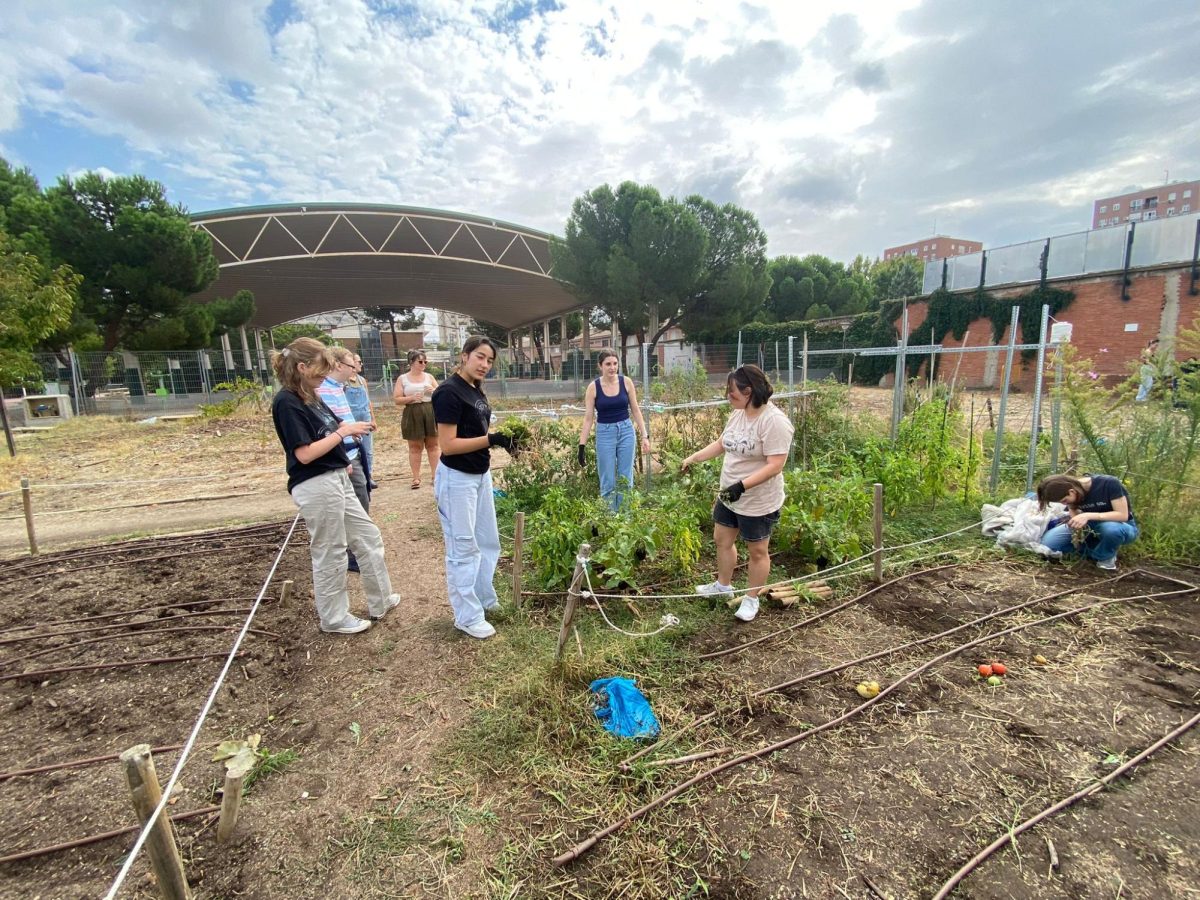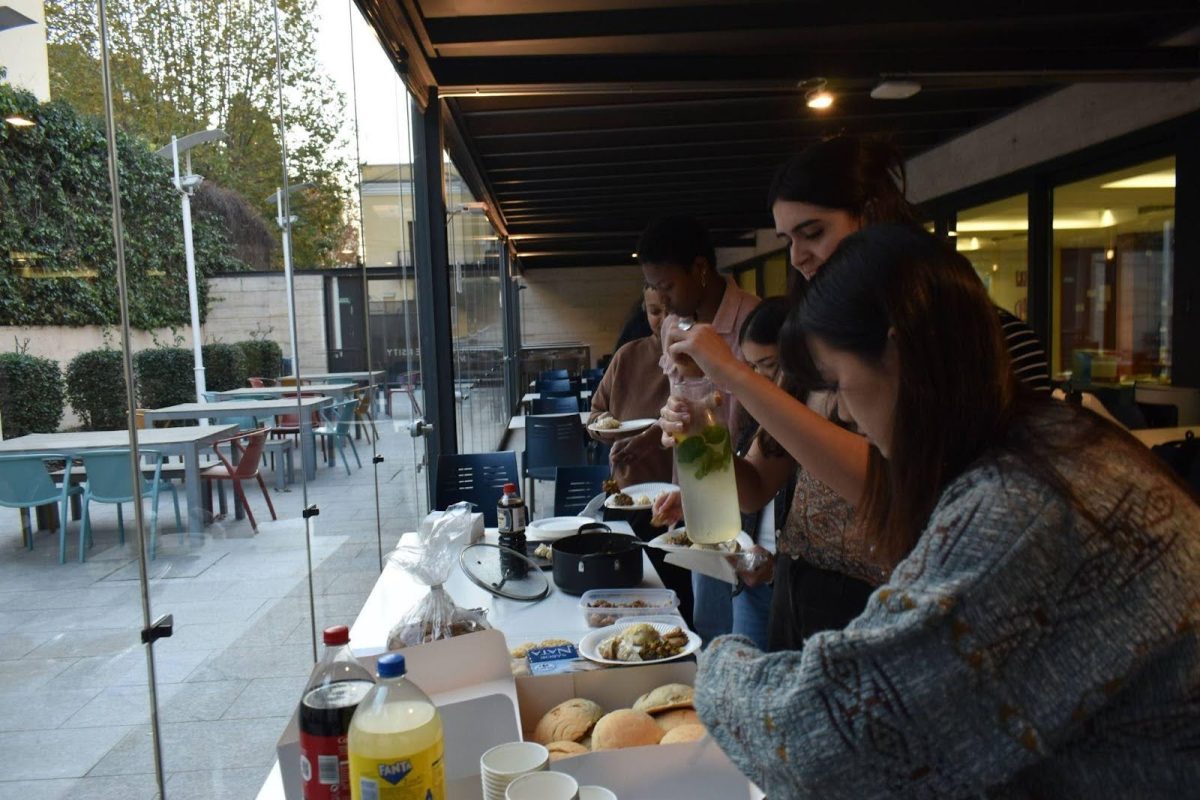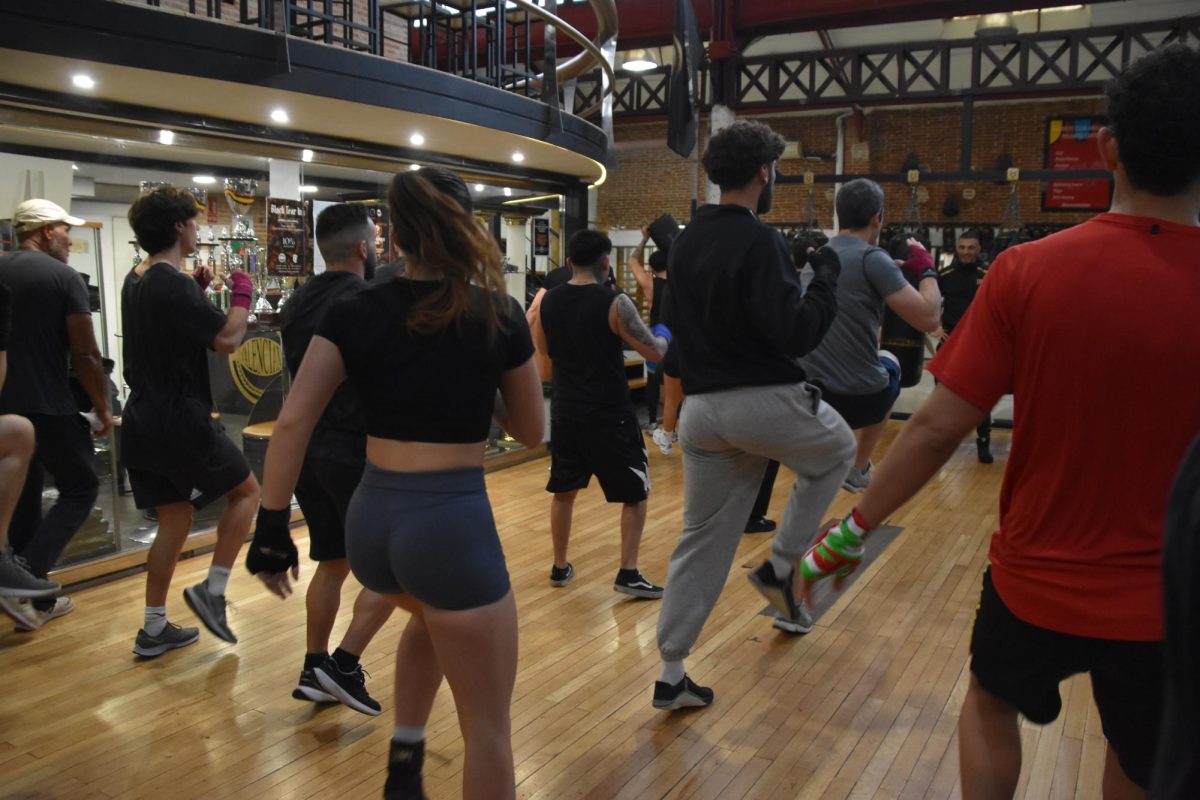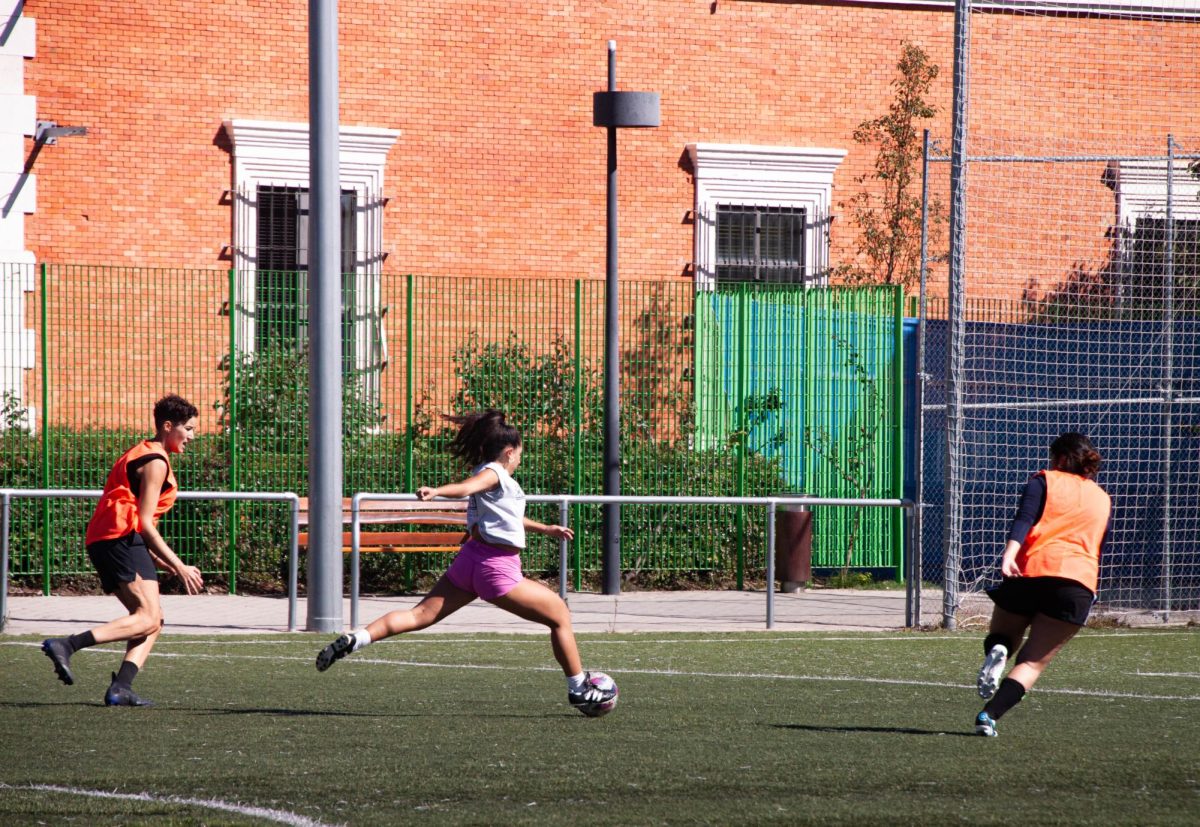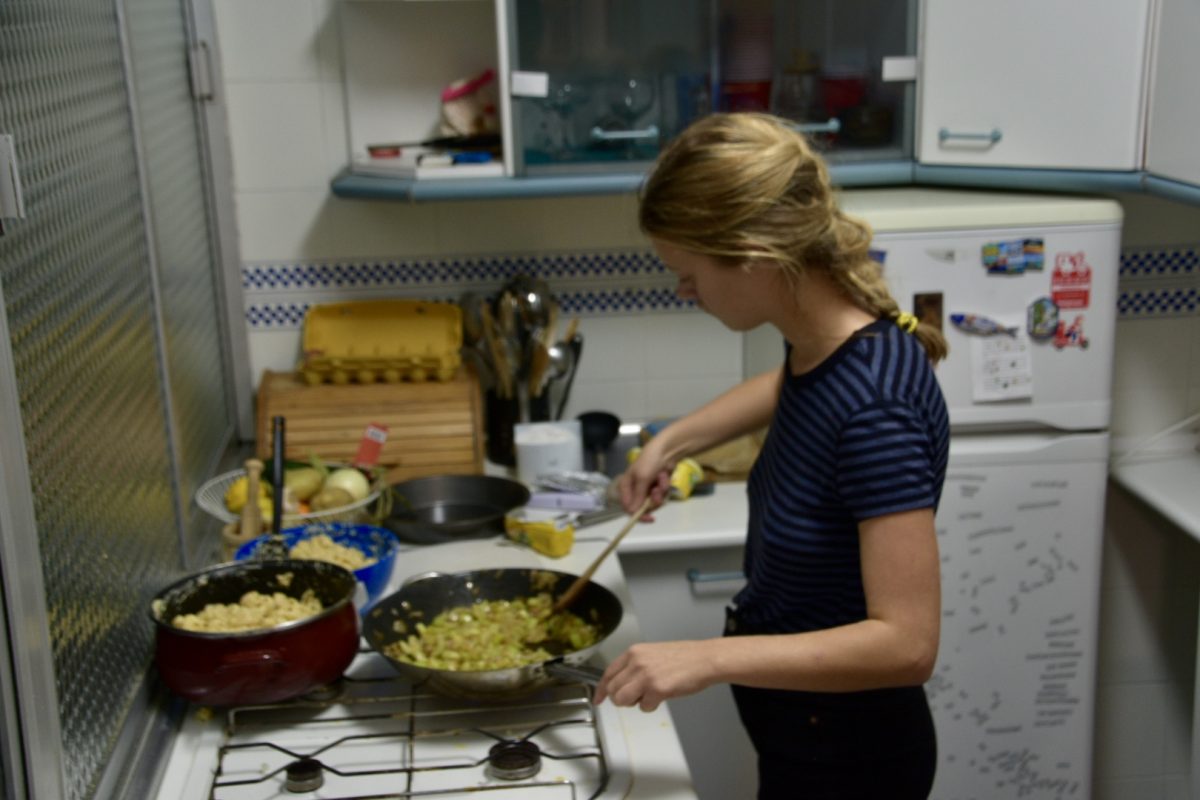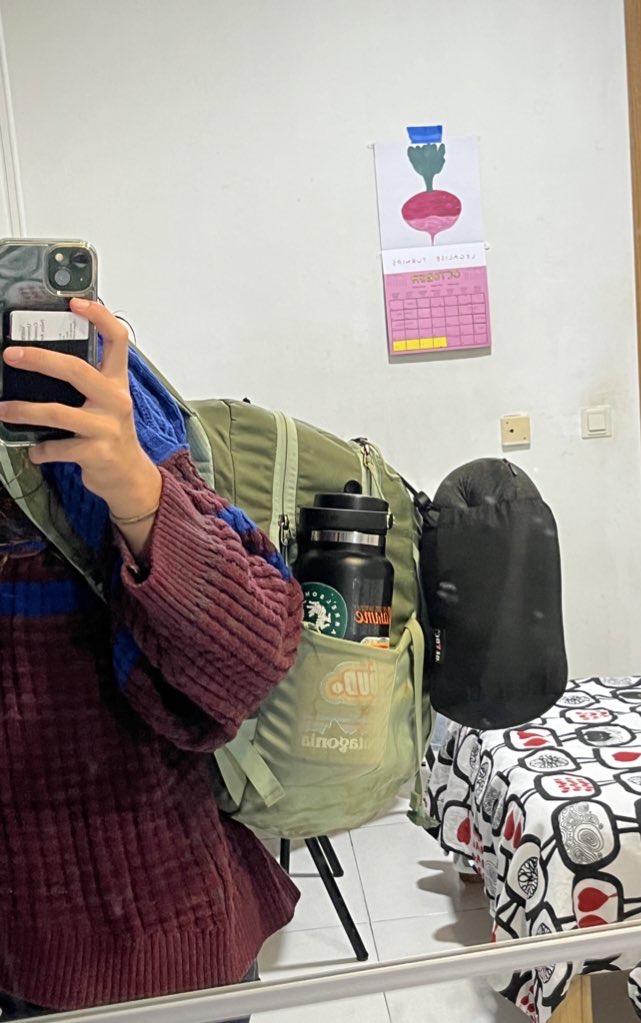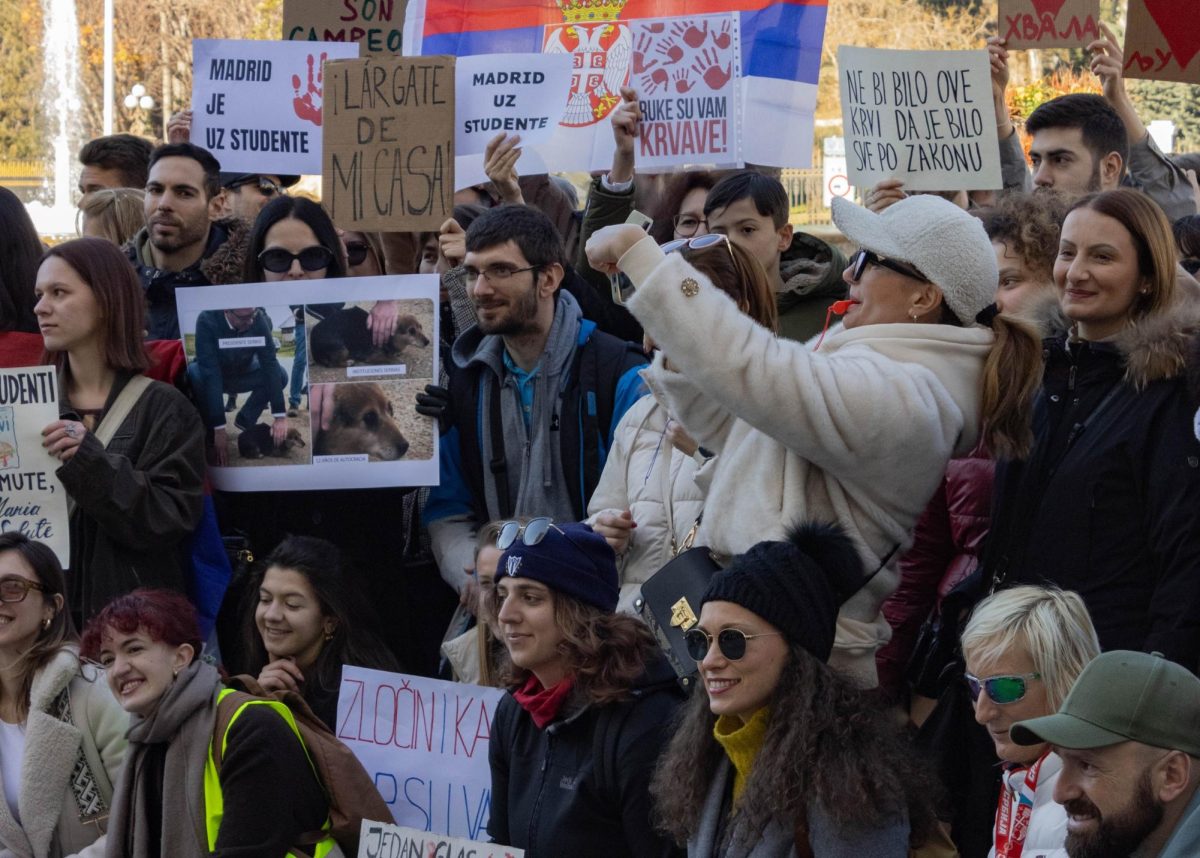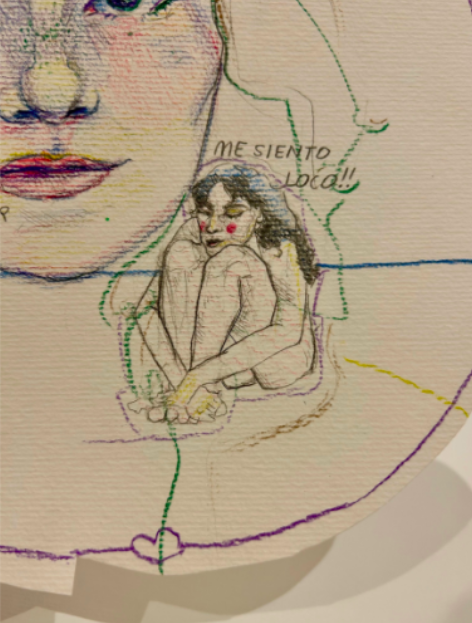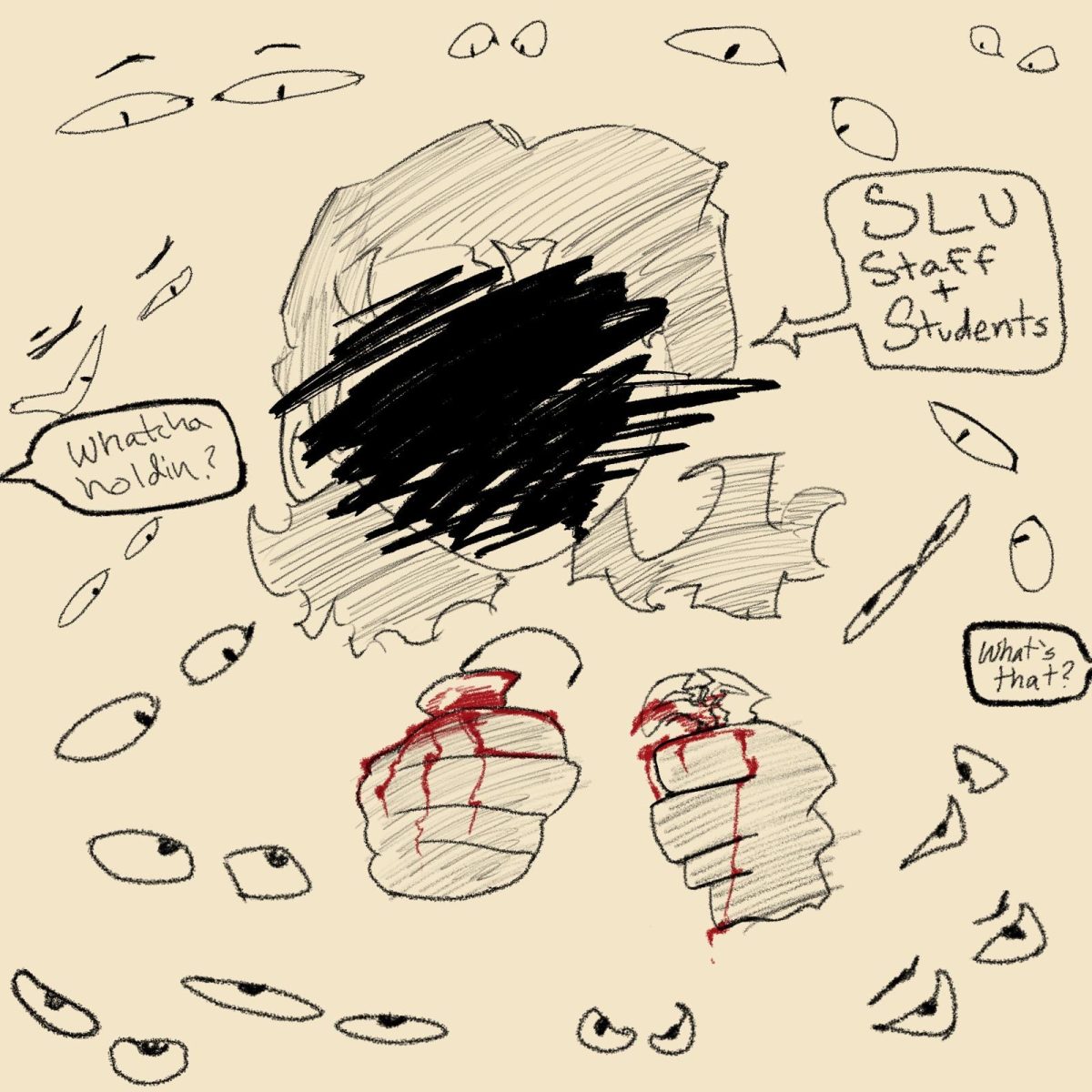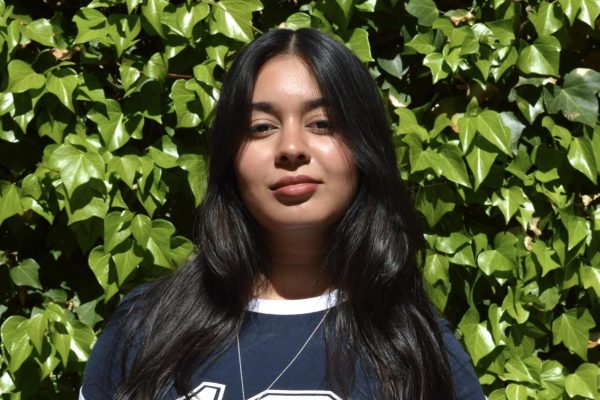“Alright everybody, let’s run Act 2 Scene 4 – but remember I want you to create an improvised foolish version,” Ernesto Lange, one of the assistant directors, shouted from across the theatre. “Think funny. Think outrageous. Think Jennifer Coolidge as Alice. And…go!”
Michaela Monterola, playing Alice, turned to Spencer Tipsin, playing Avery.
“Surely we can make this work,” Alice said in a pitch-perfect Jennifer Coolidge accent. “Catherine makes enough money; she really doesn’t need Don to change.”
Director Eloy Gomez chuckled as he recalled that moment from rehearsals.
“I said this to Ernesto’s face and I stand by it,” Gomez said. “He saved the play by asking the actors to make these bold choices. Without them realizing it, I think, they immediately found the rhythm of the scene.”
The actors soon seamlessly fell into sync; setting the tone for the production to come.
Every semester, the SLU-Madrid theatre department spearheads a play, showcasing some of their top talent. This December’s production was Rapture, Blister, Burn, written by Gina Gionfriddo, a sharp, but darkly comedic exploration of feminism, relationships, and societal expectations. The play examines how women’s choices impact their sense of fulfillment and happiness.
However, Rapture, Blister, Burn wasn’t Gomez’s first choice. It was his third.
Initially, he selected Hecuba by Marina Carr, but casting issues arose. The selection committee then ruled out Dance Nation, the second choice, due to the play’s explicit content. Ultimately, Gomez and the theatre students agreed on Rapture, Blister, Burn.
With the U.S. presidential election coinciding with this semester, Gomez, as an artist, felt compelled to direct a play that resonated with current events.
“It’s a show that’s meant to open conversation about feminism, gender roles, and where we are as compared to where we think we are,” Gomez said. “And it’s a necessary conservation. For instance, I learned that we’ve only had the feminism club for one semester, which to me seems insane.”
Lange, a performing arts minor at SLU-Madrid, echoed this sentiment and recalled Gomez’s thoughts about today’s political landscape.
“Misogyny has unfortunately become very present in our generation,” Gomez said. “Our director wanted everyone who came to the theatre to leave with some food for thought.”
After settling on the play, casting began, and rehearsals kicked off during the first week of October 2024. The team had already lost two weeks of rehearsal due to the change in plays, and faced numerous challenges throughout the semester. Students left mid-production, the text was dense, conflicting schedules tested everyone’s commitment.
“What challenges did we not face,” Gomez joked. “In fact, the first time we were able to see both acts together was just one week before the show.”
Despite these hurdles, the theatre department delivered a production that delved into pain, conflict, and love, through the lens of feminism and its impact on four women. The cast and crew were responsible for every detail, from crafting visual backdrops and lighting cues to selecting the musical transitions for each scene.
Gomez’s favorite scenes weren’t directed by him but by his assistant directors, Lange and Kate Ivanova. Lange directed Act 2 Scene 1 and Ivanova was responsible for Act 2 Scene 5.
“I directed the scene where Gwen’s character blows up and viscerally screams at Catherine because of her unhappiness,” Lange said. “It was important to convey how extremely unhappy everyone in this play is because that pain is what drives them to commit all the mistakes we see in the play.”
Gomez agreed with Lange.
“The characters so needed that, they were really good,” Gomez said. “The other scene that Kate directed is the scene with the cake, where Gwen and Don get back together again. I think that the emotional rollercoaster, especially for Gwen, I really enjoyed that.”
An emotional rollercoaster is also an apt description of the behind-the-scenes process of Rapture, Blister, Burn. Leticia Mondada, assistant stage manager and sound designer reflected on her experience.
“I felt like I was part of something, a family, you know, but without that feeling of stress of having to memorize your lines and knowing the blocking,” Mondada said. “There was still very much stress towards the end, especially tech week, which falls heavily on us instead of the actors. But once everything is set, its fun to just sit back and watch it all come to life after months of hard work.”
